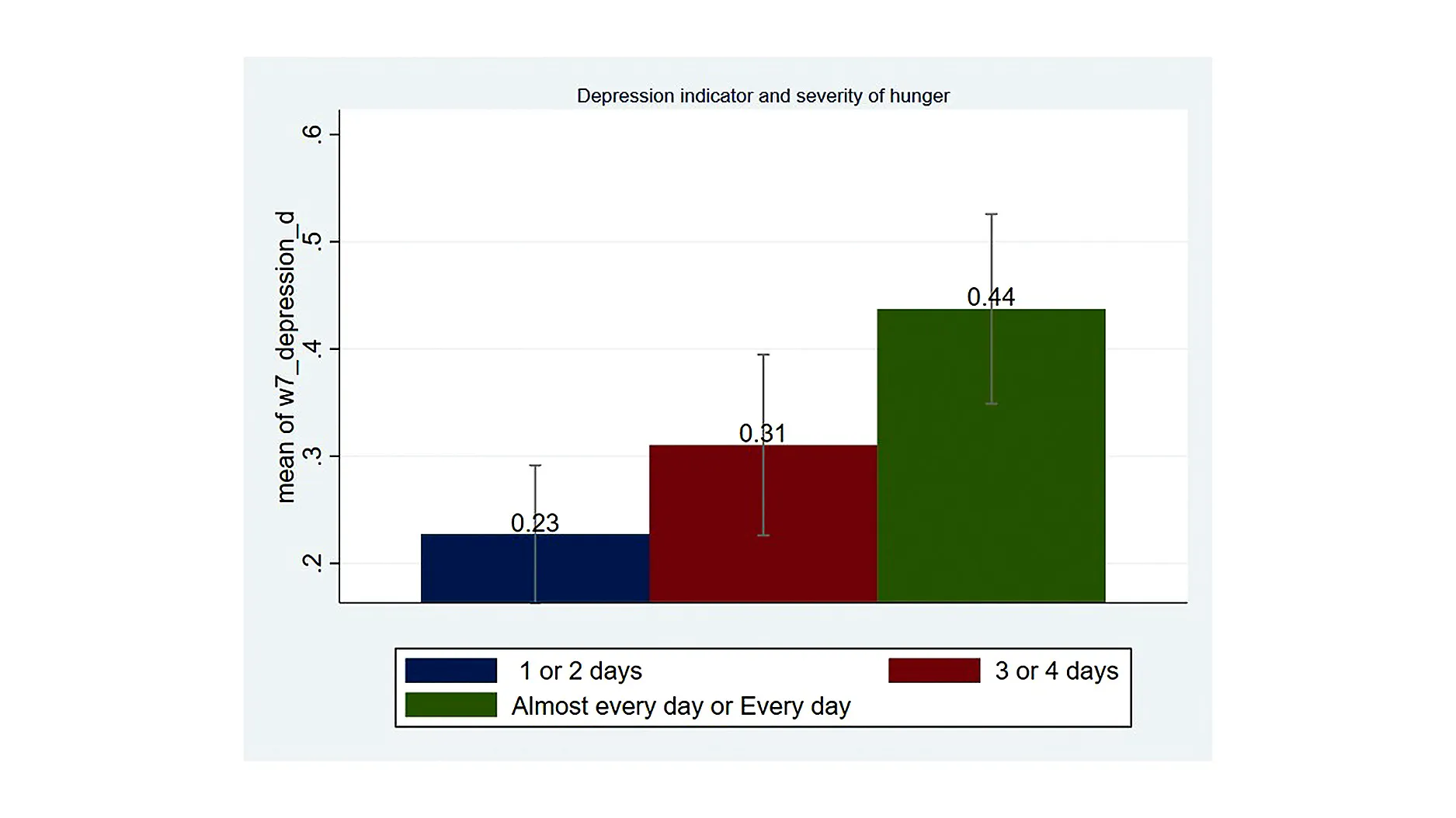Depression and mental health issues skyrocket
- Adeola Oyenubi and Umakrishnan Kollamparambil
Our results show that the prevalence of depressive symptoms seems to have doubled between 2017 and June 2020 (足球竞彩app排名 era).
Specifically, while 12% of South Africans screened positive for possible depressive symptoms in 2017, when those same individuals were resurveyed in 2020 (June/July 2020), this had increased to 24%.
The negative impact of the 足球竞彩app排名 pandemic suggests that it disproportionately affects vulnerable groups in terms of income and health. Studies have shown that the impact of the pandemic in terms of job and income loss vary by factors like gender, race, and type of employment (Spaull & the NIDS-CRAM team, 2020). Furthermore, it has been argued that poor health is more concentrated among the poor relative to the pre-Covid period with hunger, income inequality and employment status explaining the inequality (Nwosu and Oyenubi, 2020).
One aspect of health that is often less researched but is particularly important in the context of the pandemic is mental health. Prior to the pandemic, problems related to mental health generally received little attention. This has to do with resource constraint, cultural barrier and cost of training clinicians (Kagee, et al, 2013). However, given the expectation that the pandemic and associated lockdown imposes additional mental health burdens (see Galea et al, 2020; Vindegaard & Benros, 2020), policy makers need to pay attention to the short and long-term effects of the pandemic on mental health.
Our results show that the prevalence of depressive symptoms seems to have doubled between 2017 and June 2020 (足球竞彩app排名 era). Specifically, while 12% of South Africans screened positive for possible depressive symptoms in 2017, when those same individuals were resurveyed in 2020 (June/July 2020), this had increased to 24%. Contrary to what one might expect, the largest increases in reported depressive symptoms are found among historically advantaged groups with many of the pre-existing gaps in reported depressive symptoms (between men and women and between rich and poor) seem to have disappeared. However, we note that the narrowing of the gap occurs at a higher level relative to 2017. For example, it is not that the poor show less depressive symptoms relative to 2017, rather depressive symptoms have increased even more among the rich to narrow the gap.
We identified subjective risk perception, social grants, household structure and 足球竞彩app排名-related employment transition as some of the factors that are correlated with depressive symptoms in 2020. Specifically, while subjective risk perception is positively correlated with depressive symptoms for affluent individuals, number of grants receipts and household size is negatively correlated with depressive symptoms for the less affluent (we think the former has to do with the increase in grant payments). Even after controlling for all the above-mentioned factors, hunger and hunger severity remains an important factor. Those who reported that someone in their household went hungry in the last seven days are more likely to screen positive for depressive symptoms. In addition to experiencing any hunger, respondents that reported perpetual hunger (“Every day” or “Almost every day”) had twice the prevalence of depressive symptoms (42%) compared to those who experienced hunger one to two days a week or not at all (about 23%).

Source: Oyenubi and Kollamparabil, 2020
Policymakers need to pay attention to the impact of the pandemic on emotional wellbeing and mental health and make adequate provision for what may be an upsurge in acute mental health issues that could, if not addressed, become chronic and prolonged.
Emerging patterns from economies that opened up earlier than SA (European countries) are anything to go by, one cannot rule out the possibility of lockdown in future. Policies that address hunger like the food feeding programme should be operational even in the event of another lockdown. The enhanced social grants and the Special 足球竞彩app排名 Social Relief of Distress grant have played a major role in mitigating the devastating effect of the lockdown on the economically vulnerable. The government needs to seriously consider extending these interventions beyond the intended period. DM/MC
Adeola Oyenubi (PhD) is a Senior Lecturer at the School of Economics and Finance, University of the Witwatersrand. His research interest includes Development and Mathematical Economics. Uma Kollamparambil is the Head of School of the School of Economics & Finance at the University of the Witwatersrand. This article was first published in Daily Maverick.

